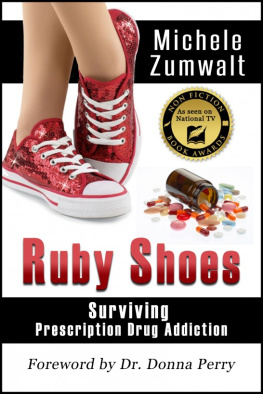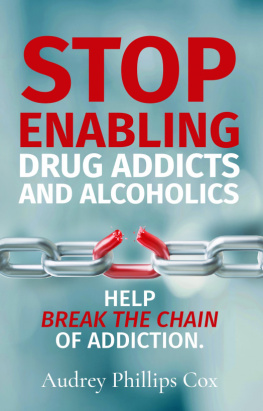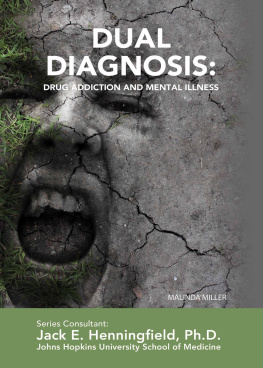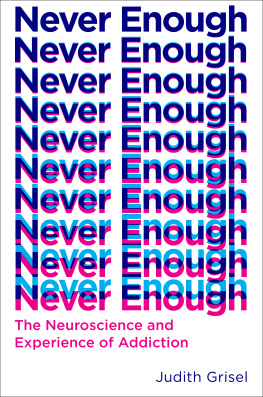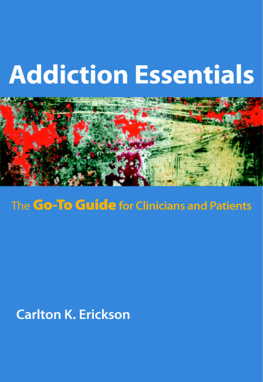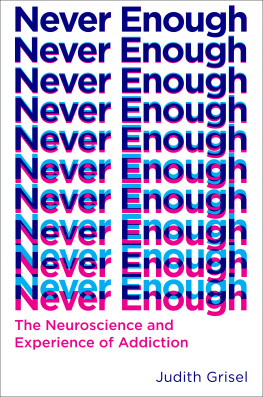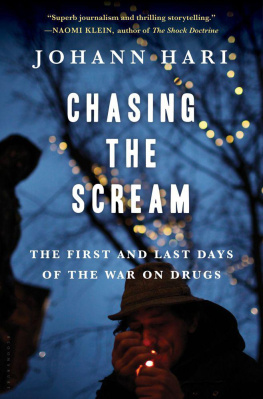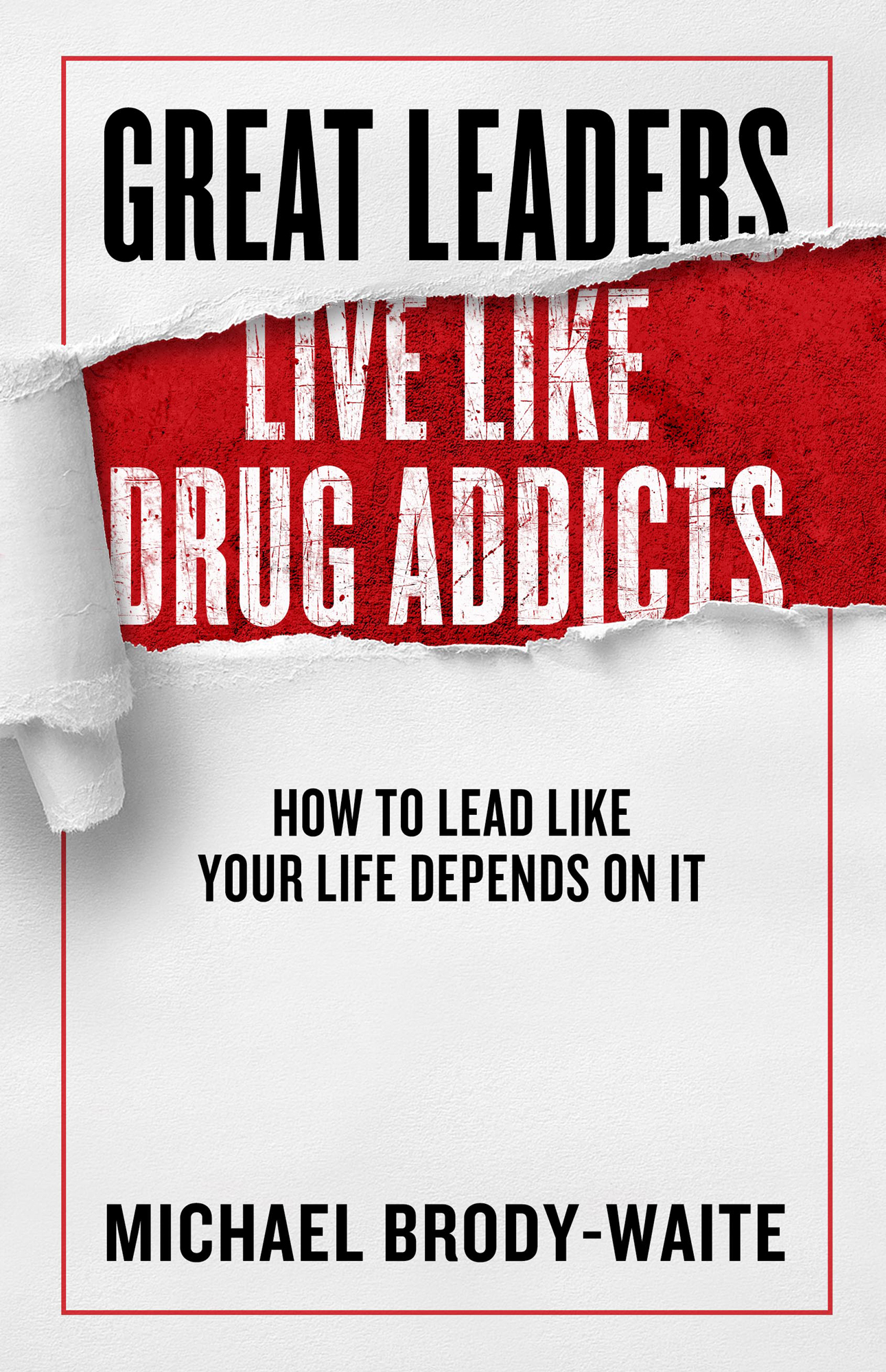CONTENTS
Guide
Great Leaders Live Like Drug Addicts: How to Lead Like Your Life Depends on It
Copyright 2020 by Michael Brody-Waite
All rights reserved. No portion of this book may be reproduced, stored in a retrieval system, or transmitted in any form or by any meanselectronic, mechanical, photocopy, recording, scanning, or otherexcept for brief quotations in critical reviews or articles, without the prior written permission of the publisher.
ISBN: 978-1-948677-31-8
ISBN: 978-1-948677-32-5 (eBook)
ISBN: 978-1-948677-53-0 (audio)
Published by Forefront Books.
Cover Design by Bruce Gore, Gore Studio Inc.
Interior Design by Bill Kersey, KerseyGraphics
AUTHOR NOTE
F IRST, THIS IS NOT A BOOK for addiction treatment. If you are struggling with addiction, get help immediately. If you are living in the U.S., you can visit www.samhsa.gov or call 211 (www.211.org) for help.
Second, in terms of the content in this book: Over the course of my recoverynearly two decadesI have learned so much, from recovery meetings and literature to business training and books to mentors, speeches, podcasts, and so on. My goal in this book is to integrate everything I have learned and turn it into a simple and actionable program for the reader. I have been influenced by so much wisdom from so many places that its nearly impossible for me to track the slogans and terms I have used here and the sources from which they came. If something that is not mine appears here, I am in no way trying to pass it off as my own. I am grateful for the influence of the content I have received over my lifetime, and I see my value more in how I have systematized that wisdom and applied it in a unique way. All props and respect go to those who came before me.
Finally, my stories are to the best of my recollection. As a drug addict who ingested quite a few chemicals over my lifetime, there is a decent chance my brain has remembered some details incorrectly.
DEDICATION
T O MY FELLOW HUMAN BEINGS : The labels of leader and addict have historically been reserved for a certain subset of our society. I wrote this book so that you can see how both of these separate concepts intersect inside of you and, more importantly, why that gives you the power to change the world.
To my fellow addicts in any form: Those of us in recovery are the ones who give me the most strength, but it is those of us who are still out there that give me the most hope.
To my higher power whom I choose to call God: I dont know why you guided me to leave you out of this text, but I believe you are still on every page.
INTRODUCTION
N OBODY EVER LOOKS AT A drug addict and says, Man, that guy really has it all together. I wish I could be more like him. Youve probably never heard a high-power CEO or business-training guru hold up a drug addict as an example of quality leadership. So what gives with the title of this book? Why on earth would I title my very first book Great Leaders Live Like Drug Addicts?
As youll find out, I know what Im talking about when it comes to drug addicts. I spent years of my life pumping as much poison into my system as I could. I was an unemployable, homeless, thieving, lying drug addict. Hows that for authenticity?
But youll also learn that I know what Im talking about when it comes to great leaders. Ive been clean for seventeen years, and in that time, Ive been a leader in retail, corporate America, startups, nonprofits, and as an entrepreneur. I am an award-winning, three-time CEO, and Ive taken a startup from nothing to 20,000 percent growth and a subsequent eight-figure acquisition by a publicly traded company.
Ive been at the very bottom, and Ive spent time at the top. Ive sat with drug addicts in more than two thousand twelve-step meetings, and Ive sat with billionaire businesspeople around mahogany conference tables. And, in that time with both these groupsand this is where I get controversialIve learned that the same things drug addicts do that makes them outcasts from society are what leaders do in their effort to become great.
LIVING IN ADDICTION
Growing up, I learned that being an addict was a terrible thing, that there was a deep stigma associated with addiction. So when I became an addict, I was ashamed. I did everything I could to hide that part of me from the world. Drug addicts who are using are in what we call active addiction. And, as my active addiction grew worse and I couldnt stop, I continued to lie and hide in order to get what I wanted. I developed tunnel vision; I was so focused on getting what I wanted that I often didnt see the impact I was making on the people I loved or even myself. And, sometimes when I could see it, I just didnt care. When my family and friends finally intervened, I yelled and screamed at them like they were crazy. I protested. I stomped my feet. I proclaimed, I dont have a problem! Id been throwing up blood but I honestly believed I was doing fine. I just couldnt see it. I had spun so many lies I couldnt keep up with what was real and what was fake. Even at rock bottom, I was doing my best to show everyone around me how well-off I was. If you had told me to be real or to be my true self in my days of active addiction, I wouldnt have known what you were talking about. The lies I told myself and others had become such a big part of my identity that I couldnt see which parts of me were real and which were fake.
Over the years, I have been taught that an addict is someone who does the same thing over and over again, despite negative consequences. So after watching endless politician and CEO scandals play out in public and after coaching thousands of leaders in dozens of fields, my observation is that most leaders learn to act a lot like addicts in active addiction. Sure, leaders may not be facing the same kind of immediate dangers that I did back then, but youd be surprised how real the danger is for these overworked and overstressed professionals. Most of the leaders I talk to tell me how tired they are, how little free time they have, and how seldom they take a day off to hang out with their families and friends or pursue hobbies without thinking about work. No matter how hard they work, no matter how much success they achieve, they never truly feel successful enough and always believe they need more. They chase the results they want, whether its a promotion, more power, a raise, a big team, or the corner office, going out of their way to bury their true selves behind a mask of what they think others expect them to be. They work long hours, forsaking their families, friends, and personal lives. They make decisions they regret because theyre scared of losing out or not getting something they want. They feel pressured to project a level of calm control over their responsibilities and teams. They hide their weaknesses and cover up their mistakeshiding their humanity in the process. They end up becoming so laser focused on their goals that they become blind to the problem, doing almost anything to get their fix.
One addict is hiding their true self on the journey to destitution or death; the other addict is hiding their true self on the journey to success.
THE HOPE SHOT
As a drug addict, I didnt know there was another way. I was vaguely familiar with recovery, but I thought that was just a punishment. No one ever told me that my addiction, what I believed to be the


